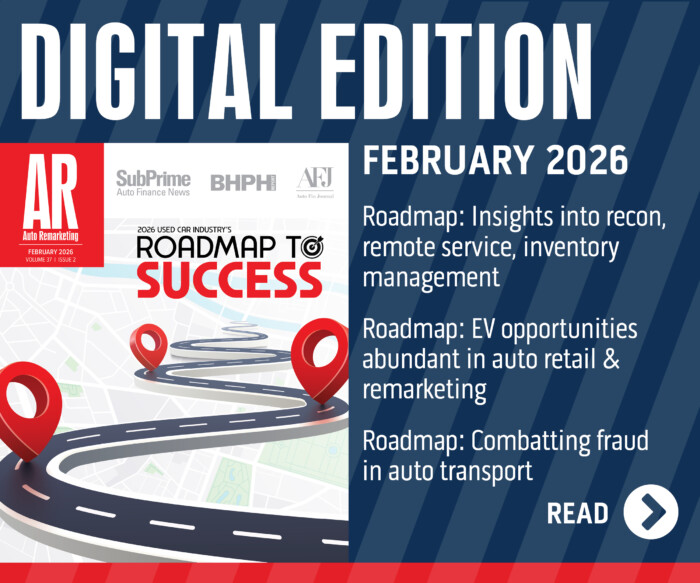Facebook announces new mobile ad features for auto companies

Photo credit: Twin Design / Shutterstock.com.
By subscribing, you agree to receive communications from Auto Remarketing and our partners in accordance with our Privacy Policy. We may share your information with select partners and sponsors who may contact you about their products and services. You may unsubscribe at any time.
MENLO PARK, Calif. –
Facebook announced this morning that the social media giant is launching new mobile ad features designed to help auto companies grow their customer base and reach new shoppers.
No doubt about it. Mobile devices have changed and continue to change how people shop for vehicles. In response, Facebook announced a new set of mobile features for its dynamic and lead ads for auto.
The dynamic ads allow manufacturers and dealers to upload their new and used vehicle inventory with details such as make, model and year.
“It then automatically generates ads that show the most compelling vehicles to the right audiences—driving them toward vehicle detail pages, lead submission forms or other valuable places,” Facebook explained.
Facebook has also enhanced its lead ads for auto, which work to simplify the process of discovering and capturing intent from Facebook users interested in dealership inventory. Lead ad viewers are sent to a form that is pre-populated with their relevant contact info, such as their email address. Interested shoppers can then submit directly through Facebook to obtain information from that dealership, including offers and quotes.
A blog post from Facebook’s auto division focusing on the new mobile features explored how in order to be successful in the auto industry today, you simply can’t afford to wait for customers to find you—you need to reach them. Facebook’s two new mobile ad features are supposed to help auto dealers do just this.
Subscribe to Auto Remarketing to stay informed and stay ahead.
By subscribing, you agree to receive communications from Auto Remarketing and our partners in accordance with our Privacy Policy. We may share your information with select partners and sponsors who may contact you about their products and services. You may unsubscribe at any time.
“The people coming into a dealership are just a small subset of your potential customer base—and that's why it's helpful to generate intent before they arrive to your location,” the blog post stated.
And more and more car shoppers are doing much of their research online — and making purchase decisions, as well, before even getting to your lot.
Serving up what online shoppers want
That means ads need to serve up what these online shoppers want. Facebook’s dynamic ads are showing people vehicles tailored to them and their interests. The dynamic ads not only allow manufacturers and dealers to upload their vehicle catalog with relevant details such as make, model and year, but they also automatically generate ads that show the most compelling inventory to the right audiences. The ads then lead shoppers toward vehicle detail pages, lead submission forms and more.
“With a single integration, you can make sure that your most relevant vehicles are always being shown to potential auto buyers—allowing you to focus on closing the sale,” the Facebook blog post stated.
One of Facebook’s early testers for these ads is Edmunds. Madhura Sengupta, director of advertising product technology at Edmunds, had this to say:
“We’re excited to partner with Facebook on a new dynamic ad solution for the automotive industry that builds on Edmunds’ extensive shopper insights to create the most relevant, personalized and informative ad experience and helps drive shoppers to their perfect car,” Sengupta said. “We are seeing promising upstream results from our early testing, and are thrilled to continue to develop this offering for both our dealer and OEM partners.”
Cox Automotive is also testing the new dynamic ads, and the company’s director of product Adam Pavkov stated, “early results have proven the product to be an effective solution for driving key onsite shopping activity.”
Reaching more potential customers
When shopping for vehicles online, if a customer is interested in a vehicle, they want to connect with the business as quickly and conveniently as possible. That's where lead ads come in.
“Facebook lead ads have been enhanced to simplify the process of capturing intent from people who are interested in your vehicle offering,” the company shard.
How? By creating an in-app experience that makes it easy for potential customers to sign up for information from your dealership, including offers and quotes.
"Lead ads for auto make it easy for people to sign up for information from your dealership, such as offers and quotes,” Facebook shared. “People are sent to a form that is pre-populated with their relevant contact info, such as their email address. They simply confirm what information they want to share with you, and voila—you have a lead.”


